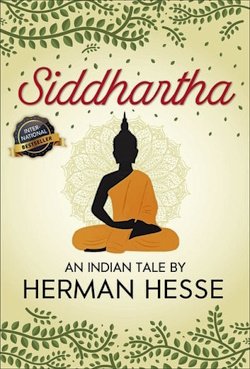“The ‘hard problem’ is not the ‘third-person’ problem of providing a scien-tific account for how a physical system, such as a human brain, can come to carry out the information processing necessary for intelligent behavior.
The reason that this is not the ‘hard problem’ is that no physical limitation has so far been identified concerning what a sufficiently complex physical 1.
Morris Berman. The Reenchantment of the World. Ithaca, N.Y.: Cornell University Press, 1981.
2.
Ralph Waldo Emerson. “Self-Reliance” in Essays: First Series. Boston: Houghton, Mifflin & Co., 1942.
Siddhartha: An Open-Source Text
9
Chapter 1. The Son of the Brahmin
system might be capable of . . . The ‘hard problem’ is, instead, the ‘first-person’ problem of understanding how the subjective quality of experience (including, the seemingly nonphysical ’qualia’ of pains, colors, odors, etc. ) can be explained or understood as arising from any physical system as described in the objective terms of present day physics. . . ”3
In writing, the third person point of view expresses a more objective se-lection of the thoughts and feelings of different characters as observed from an outside, impersonal perspective. The first person viewpoint con-fines understanding to the thoughts and feelings of the writer and what the writer knows from other sources. How could our understanding of ourselves differ by constantly referring to ourselves in the third person in our thoughts and speech?
Finally, is the third person perspective a denial of Rainer Marie Rilke’s well known stance quoted below?
And I certainly should have known that this third person who appears in every life and literature, this ghost of a third person who never existed, has no significance and must be denied. He is one of the pretexts of nature who is always intent on diverting men’s attention from her deepest mysteries.4
Discuss whether personal truth about ourselves is lost through a third-person (or objective) point of view. Specifically, try to state as clearly as possible what is lost.
3.
Piet Hut and Roger N. Shepard. “Turning ‘The Hard Problem’ Upside Down and Side-ways,” “Journal of Consciousness Studies”. (1996) 3, No.4, 313-329.
4.
Rainer Marie Rilke. The Notes of Malte Laurids Brigge in Walter Kaufmann. Existen-tialism from Dostoevsky to Sartre. New York: Meridian, 1956. 114-5.
10
Siddhartha: An Open-Source Text

Chapter 2
With the Samanas
Two Figures, Library of Congress
From the reading. . .
“A goal stood before Siddhartha, a single goal: to become empty, empty of thirst, empty of wishing, empty of dreams, empty of joy and sorrow.”
Ideas of Interest from “With the
Samanas”
1. Siddhartha’s goal is to conquer the self. Explain what this means.
2. Hesse writes that Siddhartha “slipped out of his self into thousands of other forms.” What do you think is the reason for Siddhartha’s attempt to capture through meditation the archetypes of life itself?
11
Chapter 2. With the Samanas
3. Explain Siddhartha’s discovery that there are many ways to lose self.
Why does he believe them to be all tricks?
4. Why is Siddhartha unimpressed with the magic arts?
The Reading Selection from “With the
Samanas”
In the evening of this day they caught up with the ascetics, the skinny Samanas, and offered them their companionship and—obedience. They were accepted.
Siddhartha gave his garments to a poor Brahmin in the street. He wore nothing more than the loincloth and the earth-coloured, unsewn cloak. He ate only once a day, and never something cooked. He fasted for fifteen days. He fasted for twenty-eight days. The flesh waned from his thighs and cheeks. Fever-ish dreams flickered from his enlarged eyes, long nails grew slowly on his parched fingers and a dry, shaggy beard grew on his chin. His glance turned to ice when he encountered women; his mouth twitched with contempt, when he walked through a city of nicely dressed people. He saw merchants trading, princes hunting, mourners wailing for their dead, whores offering themselves, physicians trying to help the sick, priests determining the most suitable day for seeding, lovers loving, mothers nursing their children—and all of this was not worthy of one look from his eye, it all lied, it all stank, it all stank of lies, it all pretended to be meaningful and joyful and beautiful, and it all was just concealed putrefaction. The world tasted bitter. Life was torture.
A goal stood before Siddhartha, a single goal: to become empty, empty of thirst, empty of wishing, empty of dreams, empty of joy and sorrow. Dead to himself, not to be a self any more, to find tranquility with an emptied heart, to be open to miracles in unselfish thoughts, that was his goal. Once all of my self was overcome and had died, once every desire and every urge was silent in the heart, then the ultimate part of me had to awake, the innermost of my being, which is no longer my self, the great secret.
Silently, Siddhartha exposed himself to burning rays of the sun directly above, glowing with pain, glowing with thirst, and stood there, until he neither felt any pain nor thirst any more. Silently, he stood there in the rainy season, from his hair the water was dripping over freezing shoulders, over freezing hips and legs, and the penitent stood there, until he could not feel the cold in his shoulders and legs any more, until they were silent, until they were quiet. Silently, he cowered in the thorny bushes, blood dripped from the burning skin, from festering wounds dripped pus, and Siddhartha stayed rigidly, stayed motionless, until no blood flowed any more, until nothing stung any more, until nothing burned any more.

























